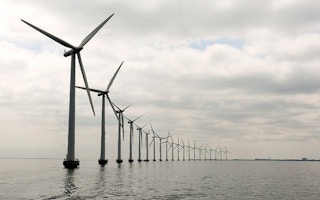According to a news release by the UN Environment Programme (UNEP), ANZ, Barclays, Bradesco, Citi, Itaú, National Australia Bank, Royal Bank of Canada, Santander, Standard Chartered, TD Bank Group, and UBS have jointly committed to develop analytical tools and indicators to strengthen assessments and disclosures of climate-related risks and opportunities.
“The message from financial heavyweights is clear – climate change poses a real and serious threat to our economy,” said Erik Solheim, the Executive Director of UNEP, in the release.
“At the same time, there are enormous business opportunities in taking climate action. Transparency on how financial institutions mitigate the risks and seize the opportunities of a two degrees pathway is crucial to move international markets towards actively supporting a low-carbon and climate-resilient future,” he added.
In the news release, UNEP noted that increasing the amount of reliable information on financial institutions’ exposure to climate-related risks and opportunities would also strengthen the stability of the financial system and help boost climate-friendly investments.
“
The message from financial heavyweights is clear –climate change poses a real and serious threat to our economy. At the same time, there are enormous business opportunities in taking climate action.
Erik Solheim, executive director, UNEP
The partnership between the institutions and the UNEP Finance Initiative follows the recommendations by the Financial Stability Board (FSB)’s Task Force on Climate-Related Financial Disclosures (TCFD).
The Task Force was mandated by the Board to develop voluntary, consistent climate-related financial risk disclosures for use by companies, investors, lenders and insurers. Its final recommendations were published in June and submitted to the G20 last week.
It is anticipated that results from the undertaking will encourage banks worldwide to adopt such climate-focused efforts.
“After the G20, the issue now is about implementation: how can the finance industry put the framework into practice and deliver disclosure that is meaningful?”
“Through this and other industry-led working groups UNEP FI is helping the finance sector to do just that: Move from awareness to action.” said Christian Thimann, group head of strategy, sustainability and public affairs at the AXA Group, co-chair of UNEP Finance Initiative and TCFD Vice-Chair.










